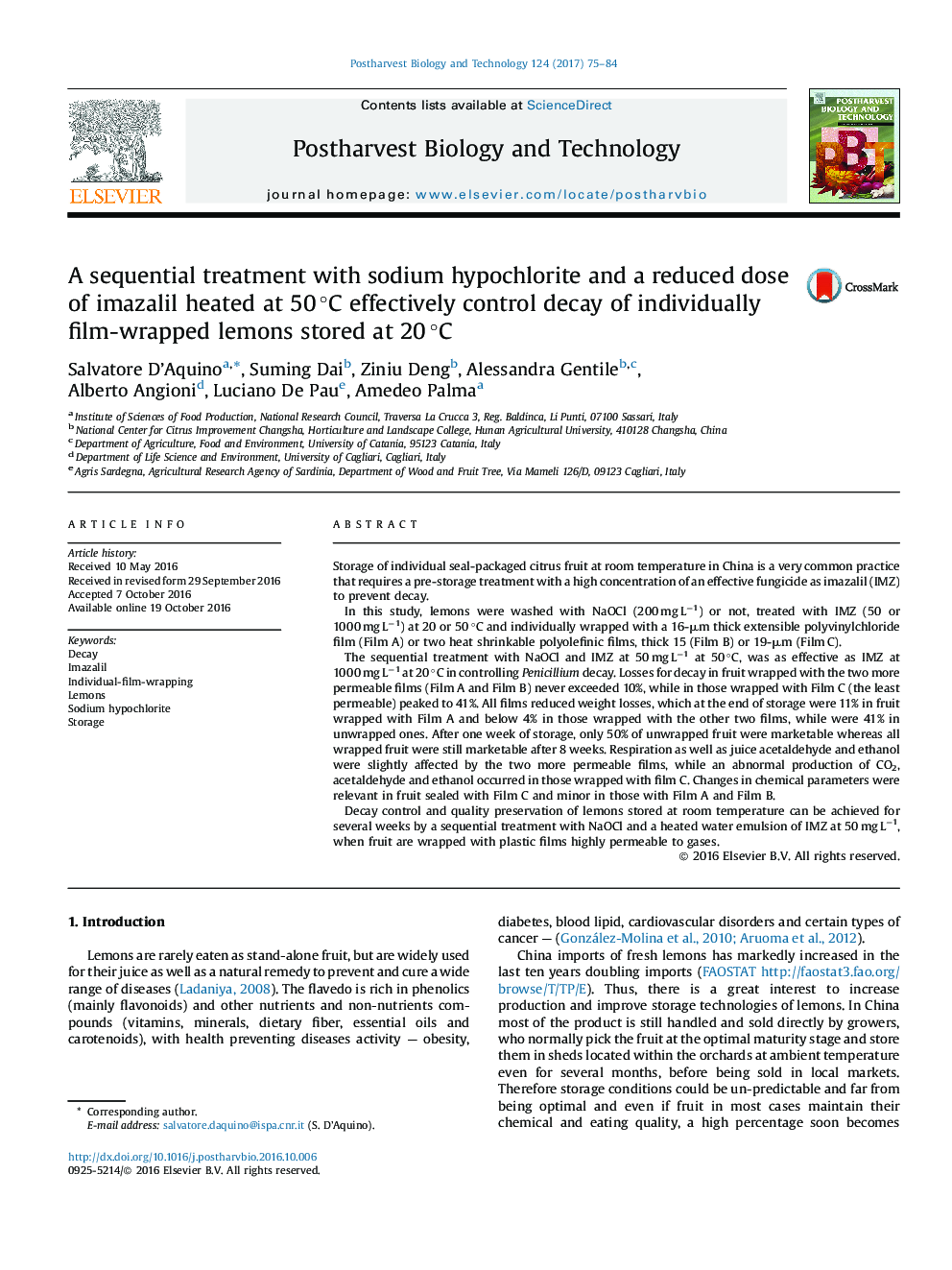| کد مقاله | کد نشریه | سال انتشار | مقاله انگلیسی | نسخه تمام متن |
|---|---|---|---|---|
| 4517658 | 1624970 | 2017 | 10 صفحه PDF | دانلود رایگان |
• Heated imazalil at low dosage (H-IMZ) was tested to control decay of wrapped lemons.
• H-IMZ efficiency declined with storage in wrapped lemons stored at 20 °C for 8 weeks.
• A sequential treatment with NaOCl and H-IMZ markedly improved decay control.
• Decay incidence of wrapped lemons increased as film permeability decreased.
• Overall eating quality was better maintained in films with high permeability to gases.
Storage of individual seal-packaged citrus fruit at room temperature in China is a very common practice that requires a pre-storage treatment with a high concentration of an effective fungicide as imazalil (IMZ) to prevent decay.In this study, lemons were washed with NaOCl (200 mg L−1) or not, treated with IMZ (50 or 1000 mg L−1) at 20 or 50 °C and individually wrapped with a 16-μm thick extensible polyvinylchloride film (Film A) or two heat shrinkable polyolefinic films, thick 15 (Film B) or 19-μm (Film C).The sequential treatment with NaOCl and IMZ at 50 mg L−1 at 50 °C, was as effective as IMZ at 1000 mg L−1 at 20 °C in controlling Penicillium decay. Losses for decay in fruit wrapped with the two more permeable films (Film A and Film B) never exceeded 10%, while in those wrapped with Film C (the least permeable) peaked to 41%. All films reduced weight losses, which at the end of storage were 11% in fruit wrapped with Film A and below 4% in those wrapped with the other two films, while were 41% in unwrapped ones. After one week of storage, only 50% of unwrapped fruit were marketable whereas all wrapped fruit were still marketable after 8 weeks. Respiration as well as juice acetaldehyde and ethanol were slightly affected by the two more permeable films, while an abnormal production of CO2, acetaldehyde and ethanol occurred in those wrapped with film C. Changes in chemical parameters were relevant in fruit sealed with Film C and minor in those with Film A and Film B.Decay control and quality preservation of lemons stored at room temperature can be achieved for several weeks by a sequential treatment with NaOCl and a heated water emulsion of IMZ at 50 mg L−1, when fruit are wrapped with plastic films highly permeable to gases.
Journal: Postharvest Biology and Technology - Volume 124, February 2017, Pages 75–84
